Knowing the difference between coily hair and curly hair will make a world of difference in your hair knowledge. It can also help you maintain your hair better if you understand if you have coily or curly hair.
Coily hair and curly hair both have some curl to them, but knowing the curl pattern of your hair will help you care for your hair type in the long run.
What Are Curl Patterns?
Curl patterns apply to all types of hair to distinguish wavy hair from curly hair from coily hair. If you’ve got ringlets, but they don’t coil tightly, odds are you have Type 3 curls under the “curly” category.
If you’ve got small, very tight curls, odds are you have coily hair, also referred to as “kinky” or Afro-textured hair.
What Is Type 3 Hair?
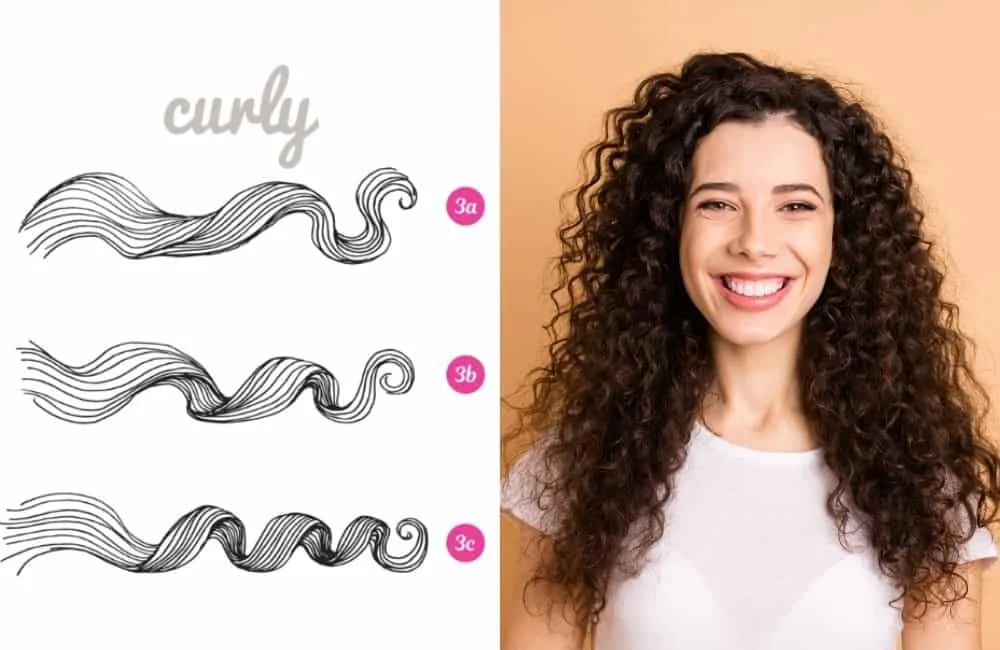
Type 3 hair is curly hair that ranges from loose loops to a bouncy corkscrew shape. Keeping this kind of hair moisturized is essential to preserving curls, and it also needs special attention to make sure the hair doesn’t frizz.
Curls are prone to frizziness, especially if the hair hasn’t gotten a wash recently. People with Type 3 curly hair need to choose products that will emphasize and retain curl texture. Sometimes one product isn’t one-size-fits-all, so don’t be afraid to layer products either. It’s all about how you want your hair to look and what feels best on your scalp.
- Type 3A – Loose curls with a small diameter
- Type 3B – Ringlets that are prone to dryness
- Type 3C – Tighter corkscrew-like curls that give natural volume
What Is Type 4 Hair?
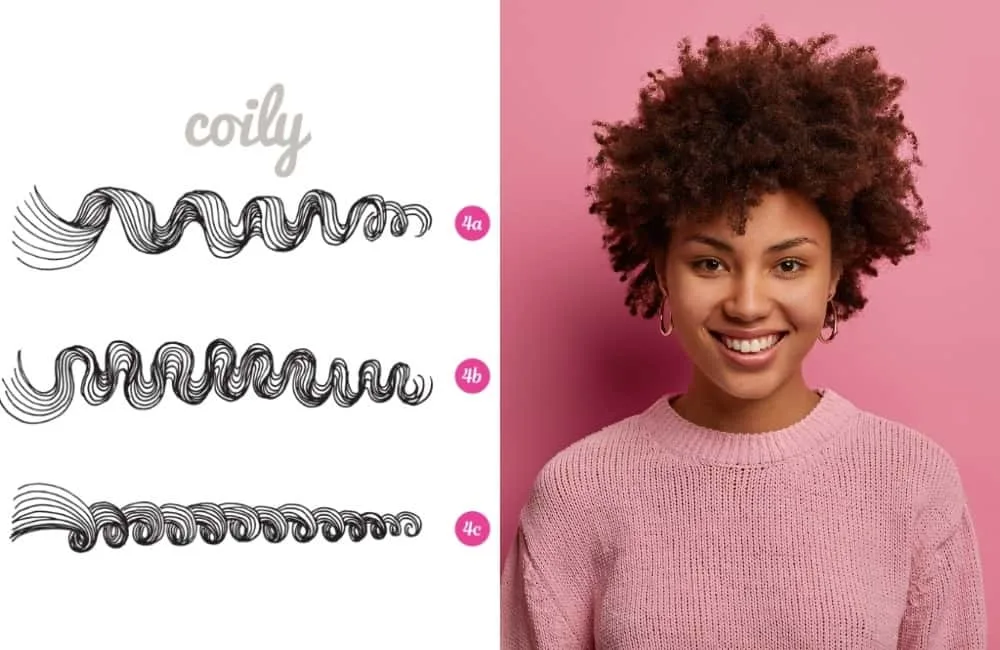
Type 4 hair is coily hair, also known as Afro-textured or kinky hair. While curly hair can still get some length when the hair is grown out, coily hair is prone to a lot of shrinkage. Coily hair can range from being coarse to soft or fine to wiry. This hair type is also naturally dry and spongy, so it’s crucial to keep it moisturized.
People with Type 4 coily hair need to be mindful of how much moisture their products provide to their hair. As with Type 3 curly hair, those with coily hair should consider layering products for extra moisture throughout the day. Coily hair is naturally very dry, so proper care will require lots of moisturizing products.
- Type 4A – Springy, dense coils with an S-shaped pattern
- Type 4B – Curls can bend sharply and are packed densely
- Type 4C – Curls are more fragile with a zig-zag pattern and have the greatest amount of shrinkage
The Difference Between Coily Hair Vs. Curly Hair
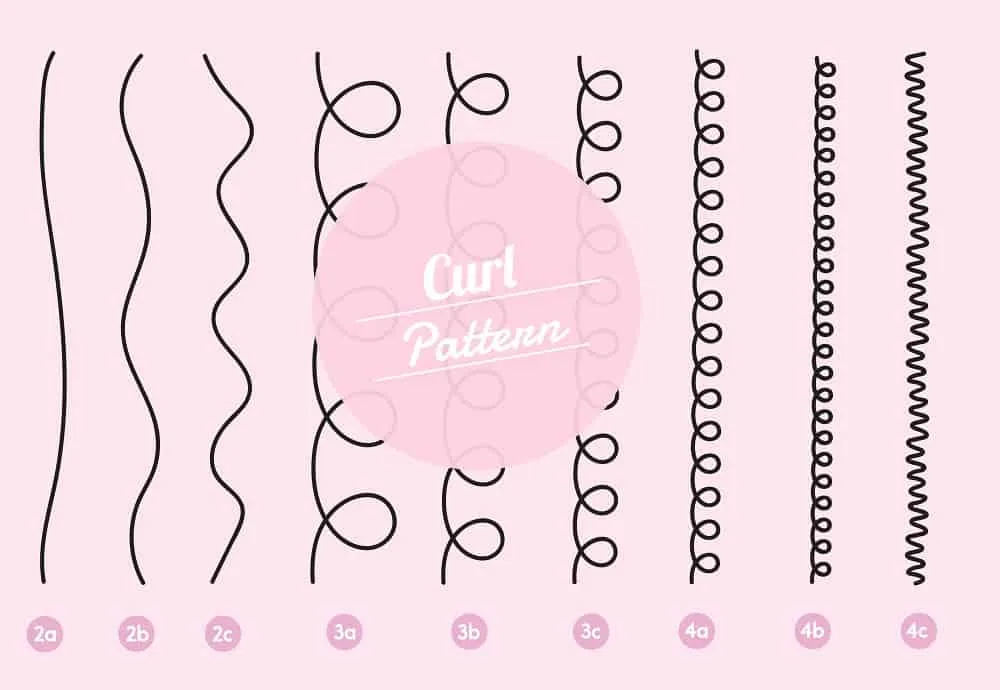
Knowing curl patterns helps distinguish coily hair from curly hair, making it easier to care for both hair types. While it’s true coily hair and curly hair form ringlets and curls, the definition between each kind of hair will change. Compared to curly hair, coily hair has more volume, sculpted ringlets, and a fuller body.
The Best Products For Coily Hair Vs. Curly Hair
There’s a lot of overlap in product between curly and coily hair, but it’s still best to decide your regular hair product based on what feels best to you.
Certain coily hair will benefit from other products that could be too heavy for curly hair. Vice versa, coily hair might not get enough nutrients from products designed for Type 3 curly hair.
Curl Cream
There are many different curl creams, so it may be a bit of trial and error before you figure out the best product for your hair. Ideally, you want a curl cream that helps define your curls type, prevents frizziness, and helps maintain their shape all day long.
Refresher Spray
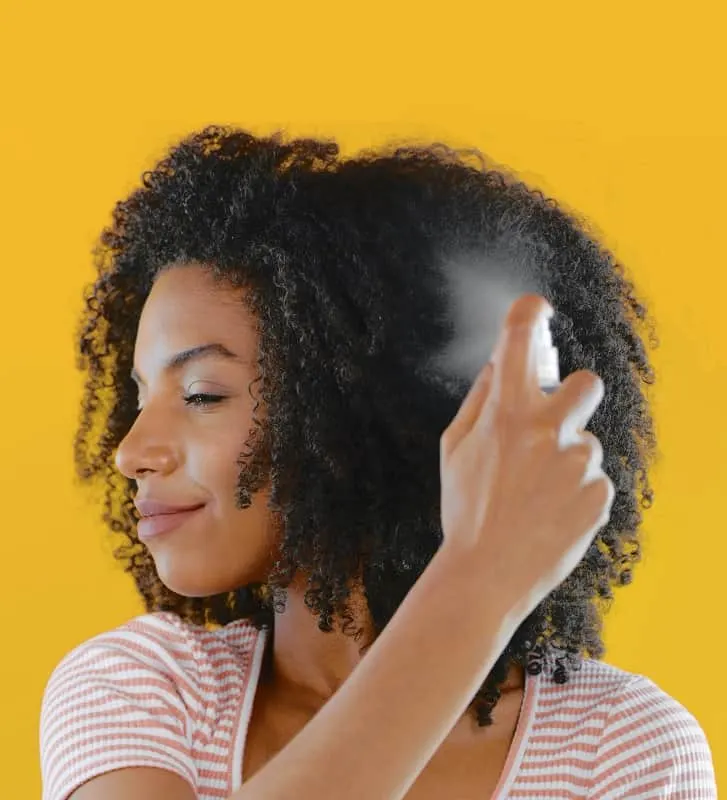
Washing your hair too much will damage your scalp and your curls, so that’s where refresher spray comes in. These types of products will bring your curls back to life by eliminating frizziness and reactivating the product already in your hair. It refreshes and reawakens curls without you having to wash your hair all over again and is perfect for on-the-go days.
Styling Gel
Gels can make curls a bit crunchy rather than soft, but sometimes that’s what people prefer. Styling gels will work to define curls and keep frizz at bay while adding needed moisture. Styling gels are especially good for Type 3B curly hair.
Co-Wash
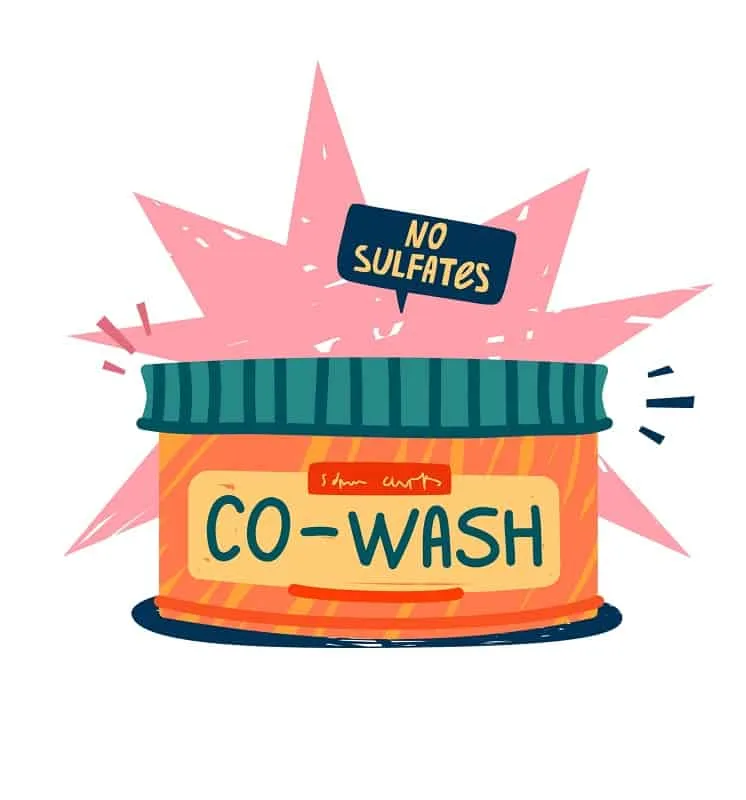
Daily washing can damage your hair, so co-washes can help prevent product buildup without a complete wash. Co-washes also help prevent the hair from drying out from overwashing and act as a shampoo alternative that removes product and allows for fresh curls without shampooing.
Leave-In Moisturizer
For curls and coils in dire need of moisture, you can’t go wrong with a leave-in moisturizer. These products will help keep your curls hydrated, bouncy, and without frizz. While you may not want to use this product daily, it’ll help those times when your hair needs a little extra love.
Curling Mousse
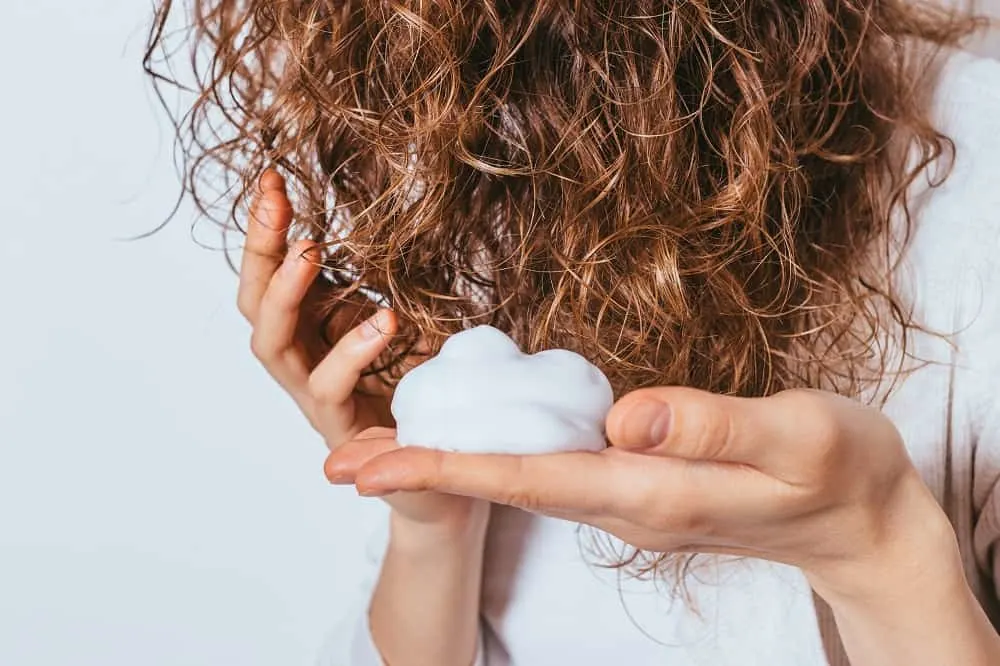
Mousse has a much lighter texture than curling creams or gels, so those who don’t like feeling products in their hair might want to try a mousse. Again, it’s going to be trial and error about what works best with your hair and which application you feel most comfortable doing.
When it comes to curly hair vs. coily hair, you need to know the difference to make sure you can care for your hair in the best way possible, including products.
